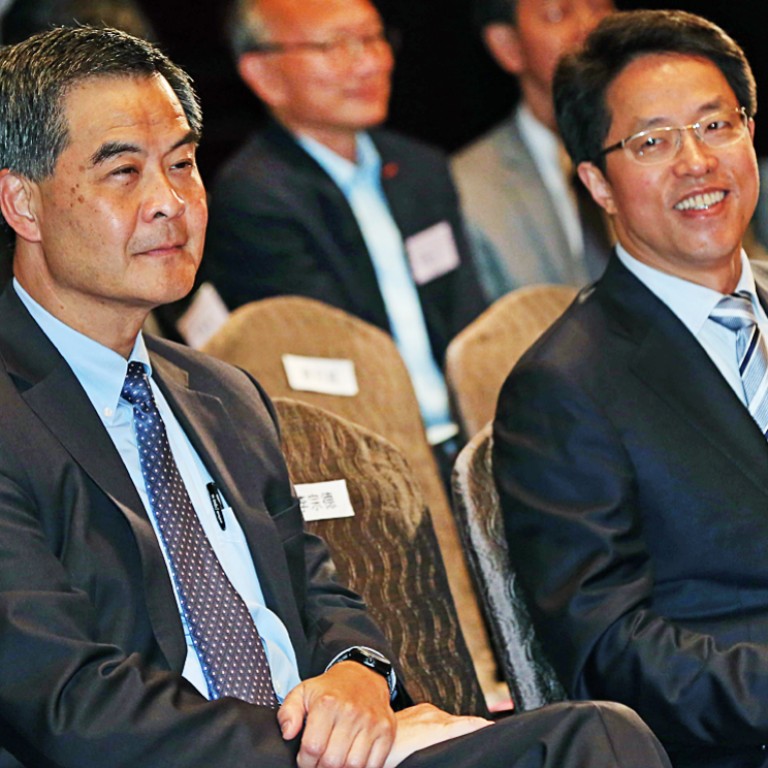
Leung Chun-ying questions Hong Kong's 'separation of powers' model after controversial remarks by Beijing official
The chief executive yesterday questioned the use of "separation of powers" to describe Hong Kong's political structure, as he broke his silence on controversial remarks by Beijing's top official in the city.
The chief executive yesterday questioned the use of "separation of powers" to describe Hong Kong's political structure, as he broke his silence on controversial remarks by Beijing's top official in the city.
A day after the Bar Association reiterated its support for the legal principle, Leung Chun-ying cited late leader Deng Xiaoping as suggesting that the Basic Law was not written to embody the separation of powers.
Leung said: "The SAR as a local government does not have complete executive power and legislative power ... [It] is not in the broad sense a government that consists of executive, legislative and judicial powers."
While reiterating judicial independence, Leung said: "The Basic Law that we often talk about is a law passed by ... the National People's Congress. Thus, can we superimpose a concept of separation of powers as found in other countries?"
READ MORE: Bar Association urges top Beijing official to clarify views on Hong Kong chief executive’s ‘overriding’ status
On Saturday, central government liaison office director Zhang Xiaoming said the concept was confined to sovereign states and served at best as a reference for Hong Kong. He also said the chief executive was in a "special legal position that transcends" the three branches. On this, Leung said: "[Zhang] did not say the chief executive's power overrides that of the judiciary or the Legislative Council."
He suggested Zhang's speech was read out of context by some and his take on separation of powers was nothing new as Deng said the same thing 28 years ago.
When he met Basic Law drafters in 1987, Deng rejected the notion of separation of powers, saying: "I am afraid it would not be appropriate for [Hong Kong's] system to copy those of Britain and the United States with … separation of the three powers and a parliamentary system."
The Bar Association argued otherwise, saying it "firmly believes" the common law principle would continue to be implemented within the city's constitutional framework.
READ MORE: ‘Hong Kong leader is above the executive branch, legislature and courts’, says Beijing’s liaison chief
Peking University law professor Rao Geping , a member of the Basic Law Committee, said the three powers were in a state of "mutual check and balance and cooperation under the leadership of the executive".
He said Zhang's speech came at a time when there was a need to clarify the chief executive was not only head of the executive but of the whole administration.
"There is a possibility that [judges] are not entirely accurate on certain issues, such as those relating to the Basic Law," Rao said. "If judges interpret Hong Kong's political structure as a separation of powers, this is inaccurate."
Chief Justice Geoffrey Ma Tao-li and his predecessor, Andrew Li Kwok-nang, have backed the principle in recent years.
Former University of Hong Kong law dean Professor Johannes Chan Man-mun called Zhang's argument "worrying".
"If Zhang means that the chief executive holds a special position and is accountable not only to [Hong Kong] but also the central government, this does not mean he is above the three branches. The Basic Law clearly sets up a checks-and-balances system among the three branches.
MICHAEL CHUGANI: Why did Beijing stir the pot and spook Hongkongers?
"The debate on whether Hong Kong is modelled on separation of powers or executive-led is meaningless. Separation of powers is not confined to the US or a sovereign country."

